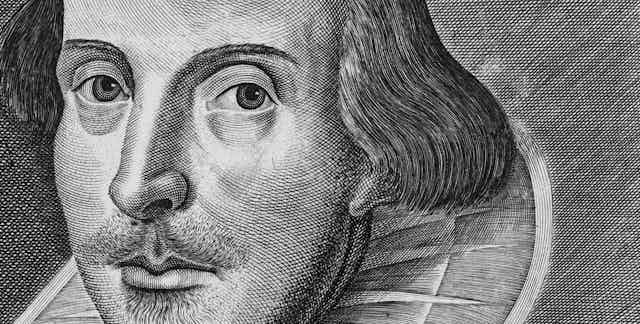Brace yourself: it’s Shakespeare’s birthday. Once again various effusive articles will circulate citing the Bard’s genius, his humanity, his uniqueness and his godlike wisdom. If you’re lucky, you’ll have got to this one first.
The others, written by respected academics, directors and actors, will be characterised by their glowing admiration for the man and his works, by their devotion to the Shakespearean cause and by their willingness to genuflect at the altar of Bardolatry. Prepare yourself for phrases of the “greatest-man-who-has-ever-lived” kind and for claims such as “Shakespeare invented language” or, indeed “invented love”; perhaps, even “invented humans”. You will read about his exploits as the greatest poet, greatest humanist, greatest intellectual, greatest [fill in with your choice].
As someone who works in academia, this annual period of mass salivation is more than a little depressing. Critical minds, which spend 364 days of the year, including Christmas Day, carefully probing and analysing the finer points of Shakespeare’s plays and poems, on this one day lose themselves in the tidal wave of hand-clasping praise and join the choruses of “Hallelujahs”, thanking the Bard for everything from language to love. The fact that all of this corresponds to related waving of St George flags, albeit by other sections of the population, adds to the general feeling of misery that overwhelms me at this time of year.
Shakespeare – born on St George’s day, 1564; died on, oh, St George’s day 1616. That really must mean something. Yes, but it seems a little too neat, a little too coincidental, doesn’t it? England’s greatest hero, greatest mind, greatest, dare I say it, tourist attraction, born and died on the same day as the English patron saint. It is as though the two are fused. Shakespeare becomes the patron saint himself, slaying the dragons of foreign competitors, such as Goethe, Pushkin, Lorca, Joyce and so on for the title of greatest writer ever.

Shakespeare, it is claimed, invented so many (1000, 2000, [fill in with your choice]) new words that had never been heard of before, so vast and other-worldly was his vocabulary. Yet, the claims that are made for Shakespeare’s use of language, like so many of the claims made in his name, are pulled out of the air like well, questionable facts.
Bardolatry
Nowhere in the wave of praise will we hear about the provisional nature of many of the things that are claimed as being true about Shakespeare.
Such as: many of his plays appeared without his name on the title page; some plays appeared with his name on the title page but were not written by him; nearly half of his plays (17 out of 36) appeared for the first time seven years after his death, in 1623, in the Collected Works known as the First Folio; no original manuscripts of plays by him survive.
And what about the man himself? Nothing is known of his education (indeed there are no records between the registration of his name in the Stratford Birth register and the registration of his name in the Stratford Marriage register 18 years later); there are two records for his marriage in the Stratford marriage register on subsequent days and to different women; the daughters of this most poetic of men grew up illiterate; he seemed to possess no books (none are mentioned in his will); the signatures that survive of this most literary of men look as though they were written by a man holding his quill in his mouth, or perhaps up a nostril. No: the facts of the man seem very difficult to match to the facts of the author of this most wonderful collection of plays.

Out of thin air
So enough already. It’s time to question much of the conventional wisdom regarding Shakespeare. So my students and I, along with reading and examining some of these beautiful works, will ponder much of the “knowledge” that we are subjected to regarding the Bard and whether there are other possibilities that might be discussed.
This will include looking at how and why such “knowledge” is produced and continually recycled in the first place. But also such subjects that question the fact that this single individual was responsible for coining 8,429 new words (or is it 11,396? Or 7,298?)
Maybe the plays were written by more than one author. Maybe they were collected together long after Shakespeare’s death and sold as being by him as a business venture, to make money. Maybe Shakespeare was a chancer of the first order himself, claiming plays as his that were, shall we say, principally the work of his collaborators. Maybe Shakespeare was just an excellent entrepreneur (which the records seem to suggest) with an eye on a fast buck and not a genius at all; at least not as far as writing goes.
So when you pick up your paper and see that face looking out at you with “A Message of Love to Sweet Will” written next to it, read it and weep. But not for Shakespeare, no. Weep for the twaddle poured forth in his name. And, for a change on his birthday, along with Hamlet (and me), take all of these messages of praise and “blow them at the moon”.

